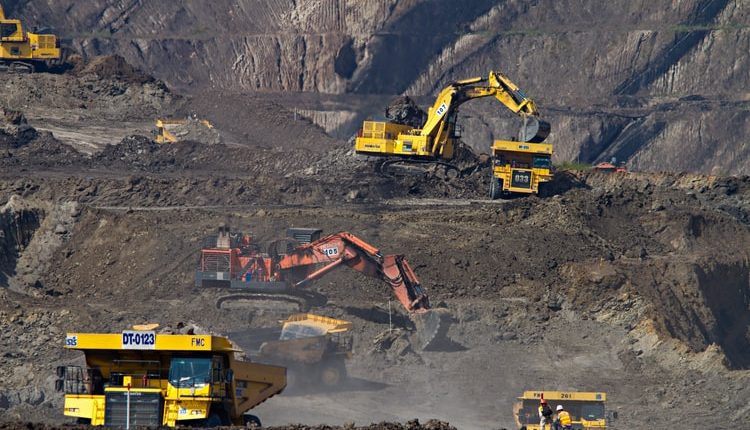As Xi Jinping vows to make China a climate leader and carbon neutral by 2060, the country still draws 70% of its power from fossil fuels; primarily coal.
But it is no secret that Xi is wrestling with China’s domestic economy and external trade, even as the virus continues to affect Chinese employment rates and the environment.
Add to this recent verbal skirmishes with Australia, and things are not looking too good for China on the international stage.
The two countries have been at odds ever since Australian Prime Minister Scott Morrison called for an independent enquiry into the origins of the COVID-19 pandemic, that emerged in China.
In response Chinese authorities retaliated with increased tariffs on Australian products.
Fast forward a few weeks and as Australian coal supplies have dried up, many cities in China have been hit by power outages after Beijing banned coal imports from south of the equator.
Even the economic powerhouses of the nation Shenzhen, Dongguan, and Guangzhou are facing power shortages.
Indeed, in three provinces of China, the situation has become so out of control that authorities have had to impose strict restrictions to limit the use of electricity.
In Hunan province, power agencies are directed to cut electricity use by turning off the street lights at night to tighten the power supply.
In Changsa, office workers have to climb 20 flights of stairs to reach their work place as the buildings have shut down the elevators to save electricity.
These hardships are faced by the local citizens while the state offices function without any interruptions.
Yiwu, known for its light industrial trade is more severely affected by the government’s energy restriction policy. Aggravated by day, the factories are mandated to cut 20-30% of product capacity. Authorities have also banned use of heating systems in trading centres.
And, with electricity demand exceeding the grid capacity, the authorities have ordered residents to ration their energy consumption.
Supplies every day are limited to between 10.30 a.m. to 12 p.m., and 4.30 p.m. to 8.30 p.m. with most building supplies turned off, and offices having no electricity during the weekend.
In Jiangxi, authorities have also set up times at which energy use is to be limited.
Manufacturers who are still struggling to get back on their feet after the worst of the pandemic have been ordered to take three days off for every day they work.
Chinese authorities are enforcing compliance by using the threat of losing supplies altogether coupled with fines.
The worsening of ties with Australia has only made things worse.
The fact that the Chinese government has denied that the shortage of coal has anything to do with its spat with Australia has also seen Beijing block Australian imports valued at US$4 billion, which will adversely impact the Chinese economy in other areas too.
China is, it seems, deliberately trying to escalate its feud with Australia.
As China heavily relies on Australia for high quality coal to power its latest generation power plants, Australia alone now supplies more than 40% of China’s coking coal and 57% of the nation’s thermal use coal.
Many coal powers plants in China depend on Australian coal due to its higher efficiency, but are now scrambling to find alternative supplies.
Even the coastal areas of China are heavily reliant on Australian coal although most nuclear power stations are sited near the coast.
China must realise that the more restrictions it imposes on energy imports, the more the country risks hurting its own interests.
Since Australian coal is key to China’s energy needs due to its quality and lower level emissions it is simply the best option on the market for China.
Statistically, Australian coal is 1.5 times more efficient in terms of energy production than any other, including China’s own domestic coal.
In the long-run too, if China wants to curb its coal consumption and reliance on Australia, it needs to ensure that there are other more sustainable methods linked to its national grid to fuel power.
Insufficient electricity production at the local level and ineffective efforts to limit energy consumption to meet vague party political missions are all indications of larger problems.
Only by using Australian coal to fuel its economy for the time being will there be a positive outcome for China.
Otherwise, a ban on Aussie coal will cause more than a dent in China’s economy – it will severely hinder any and all economic growth at the expense of an increasingly alienated public.
About the author: Wing Cdr. (retd) Sahil Mishra.
Sahil is a retired Air force officer. He is a National Defense academy alumni and completed his Air force training in Hyderabad, being commissioned as a fighter pilot. He took charge of ground duty after a decade of experience flying MiG’s. He has worked in varied fields of work in the IAF since then, Personnel Management, Procurement, and Training. He has pursued and completed post-graduation in English Honors and now writing keeps him busy post-retirement. He has been widely published in the USA, UK, Canada, Indonesia, Malaysia, India, Hong Kong, and Taiwan to name a few










Comments are closed.